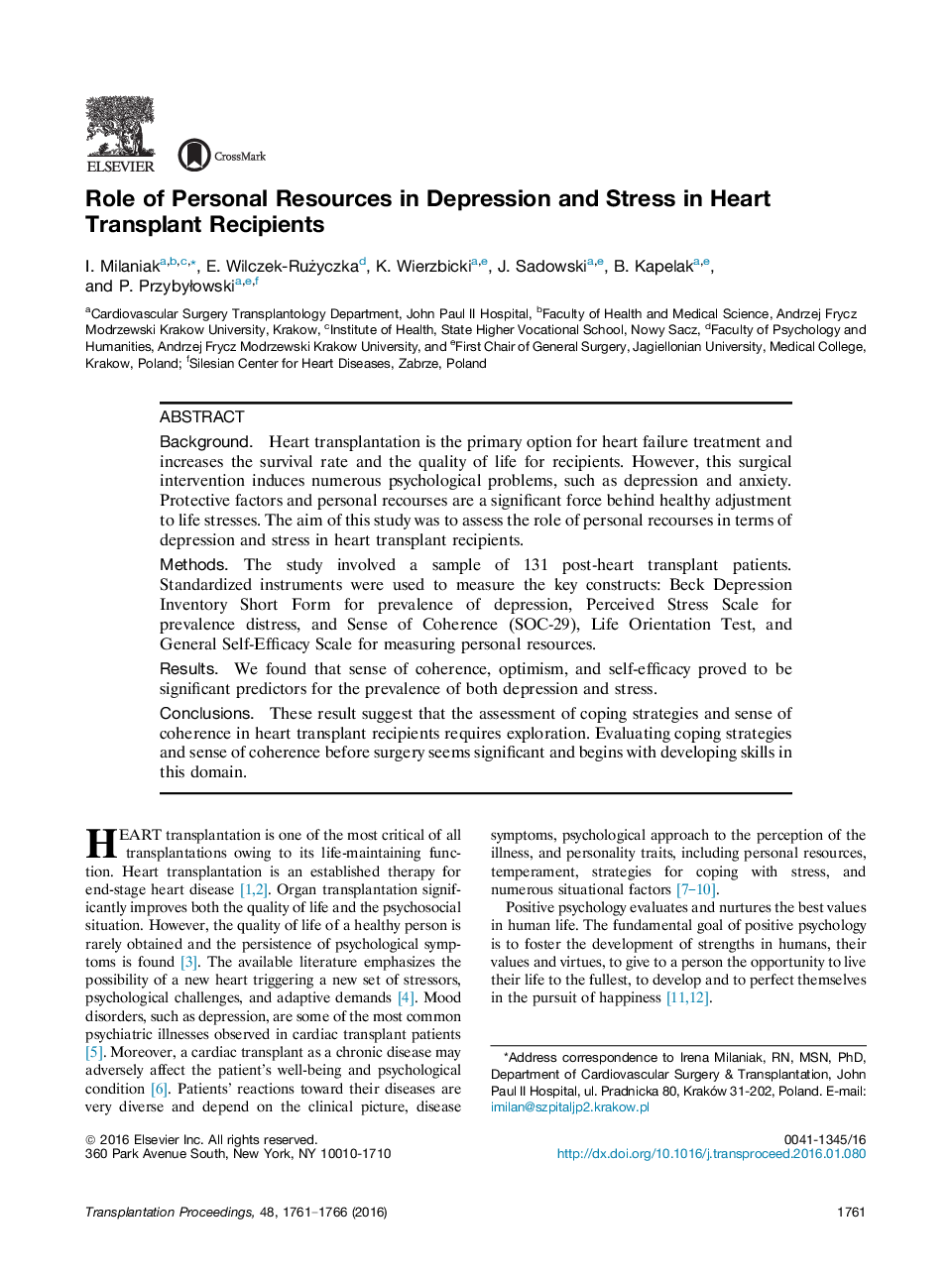| Article ID | Journal | Published Year | Pages | File Type |
|---|---|---|---|---|
| 4256114 | Transplantation Proceedings | 2016 | 6 Pages |
•Personal resources are crucial components in coping with stressful life events. They can be defined as general features of the external, interpersonal, and personal world that play a regulatory role in obtaining/maintaining a proper health status.•The personal resources were strongly associated with the prevalence of depression and stress among heart transplant recipients.•The intervention focused on personal resources is warranted to improve psychological outcomes for patients after heart transplantation.
BackgroundHeart transplantation is the primary option for heart failure treatment and increases the survival rate and the quality of life for recipients. However, this surgical intervention induces numerous psychological problems, such as depression and anxiety. Protective factors and personal recourses are a significant force behind healthy adjustment to life stresses. The aim of this study was to assess the role of personal recourses in terms of depression and stress in heart transplant recipients.MethodsThe study involved a sample of 131 post-heart transplant patients. Standardized instruments were used to measure the key constructs: Beck Depression Inventory Short Form for prevalence of depression, Perceived Stress Scale for prevalence distress, and Sense of Coherence (SOC-29), Life Orientation Test, and General Self-Efficacy Scale for measuring personal resources.ResultsWe found that sense of coherence, optimism, and self-efficacy proved to be significant predictors for the prevalence of both depression and stress.ConclusionsThese result suggest that the assessment of coping strategies and sense of coherence in heart transplant recipients requires exploration. Evaluating coping strategies and sense of coherence before surgery seems significant and begins with developing skills in this domain.
